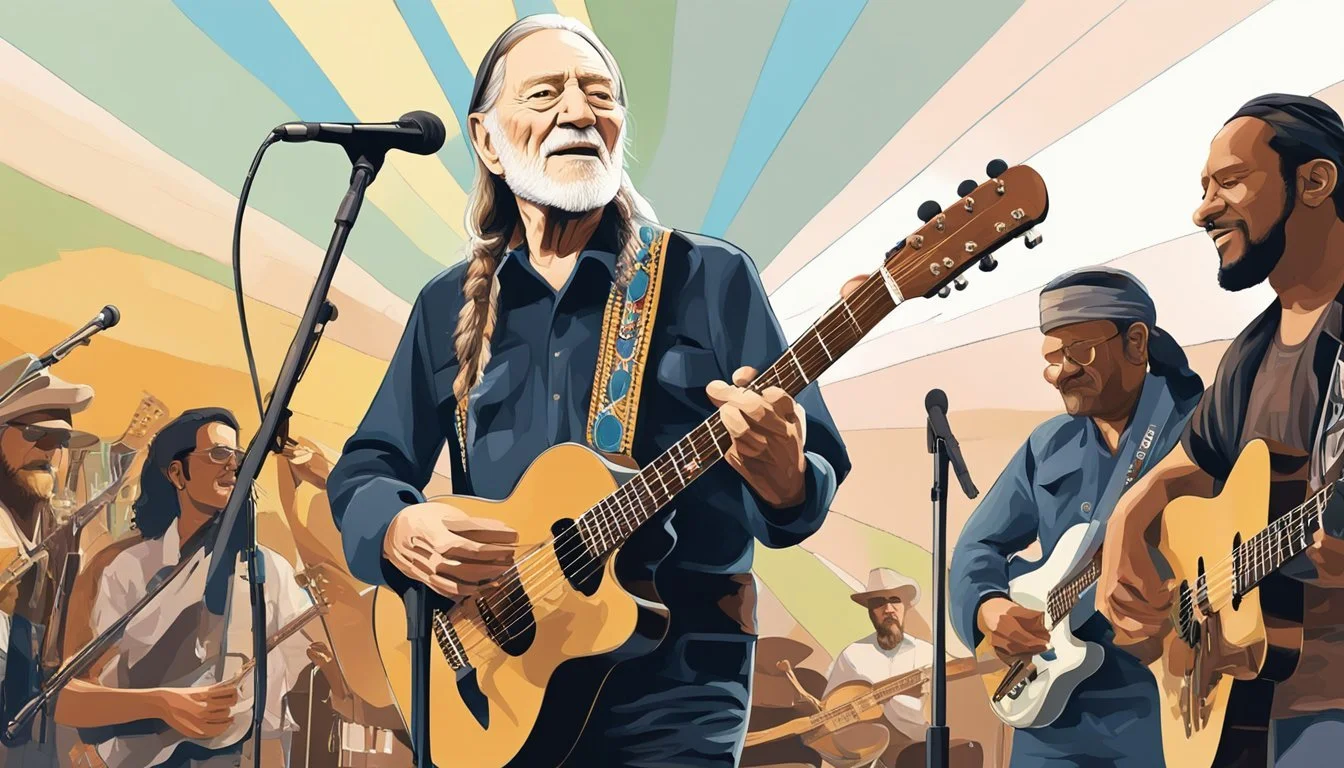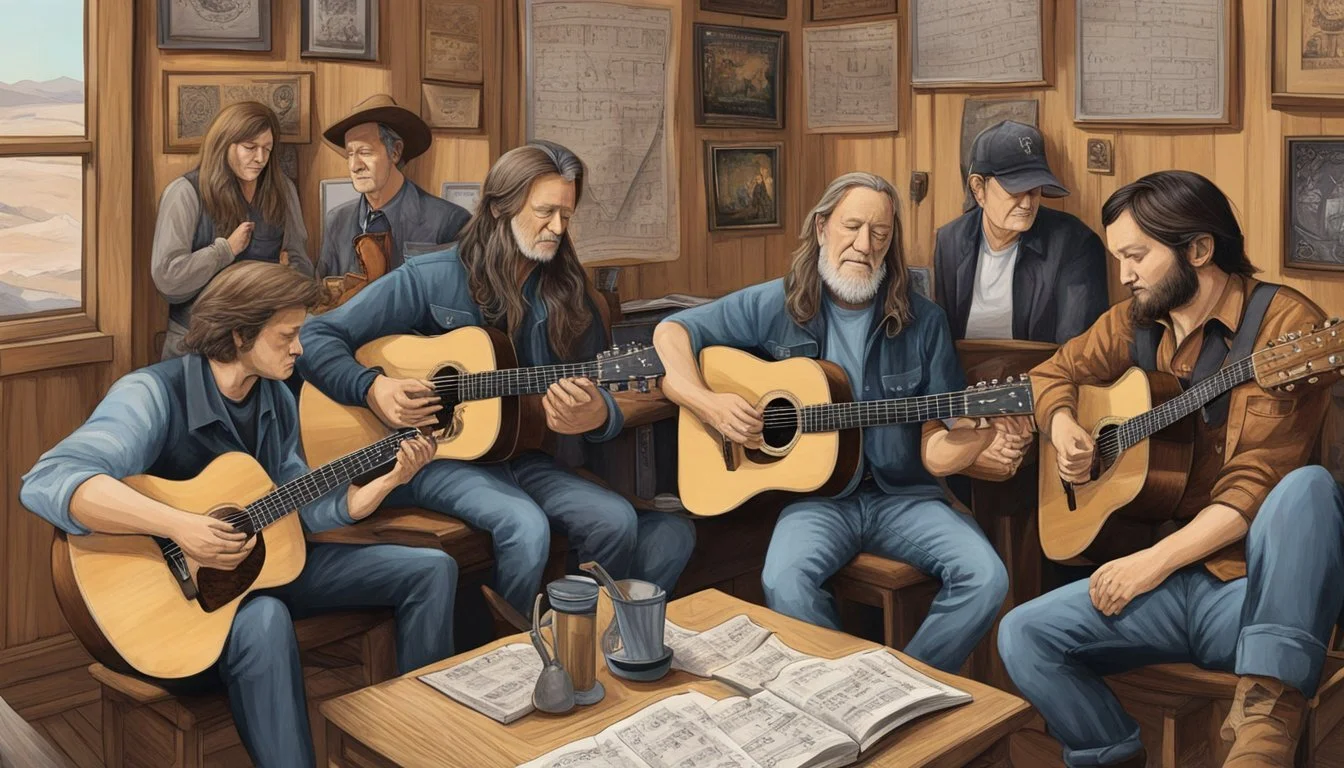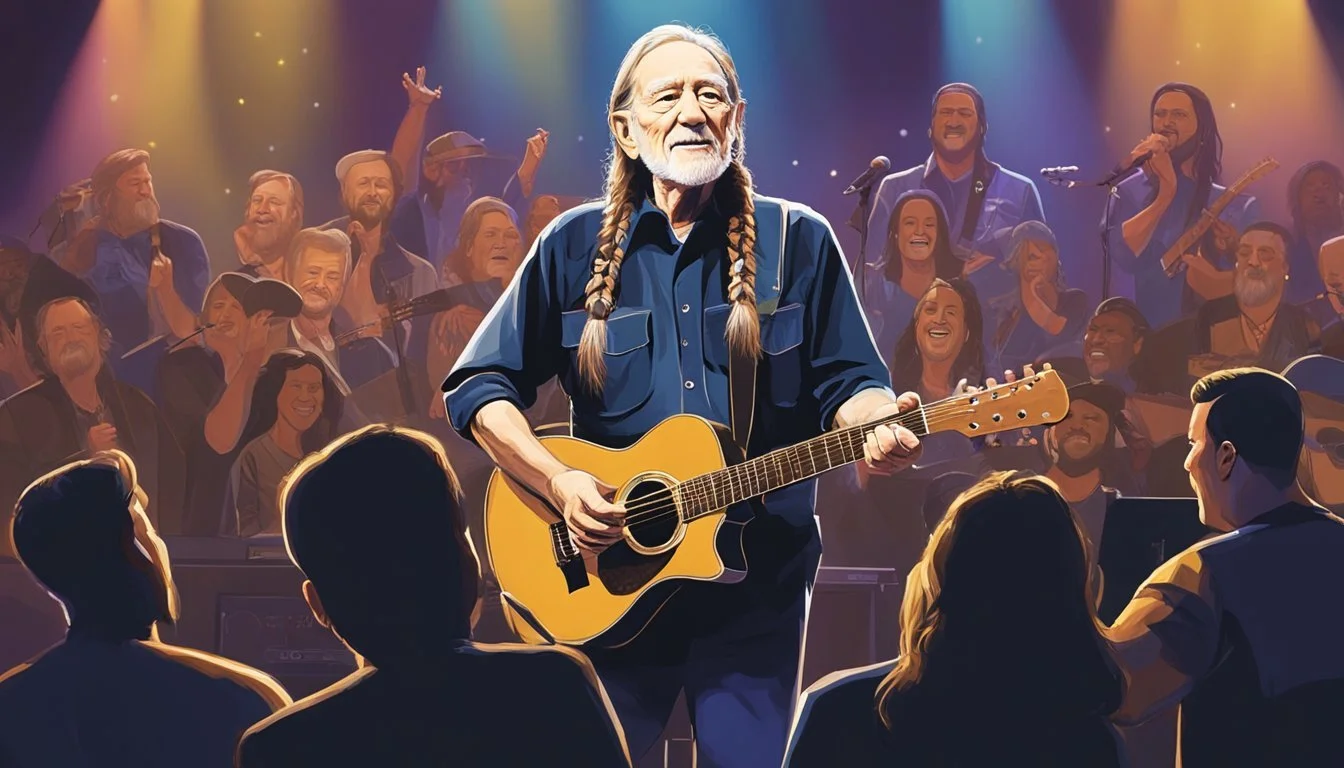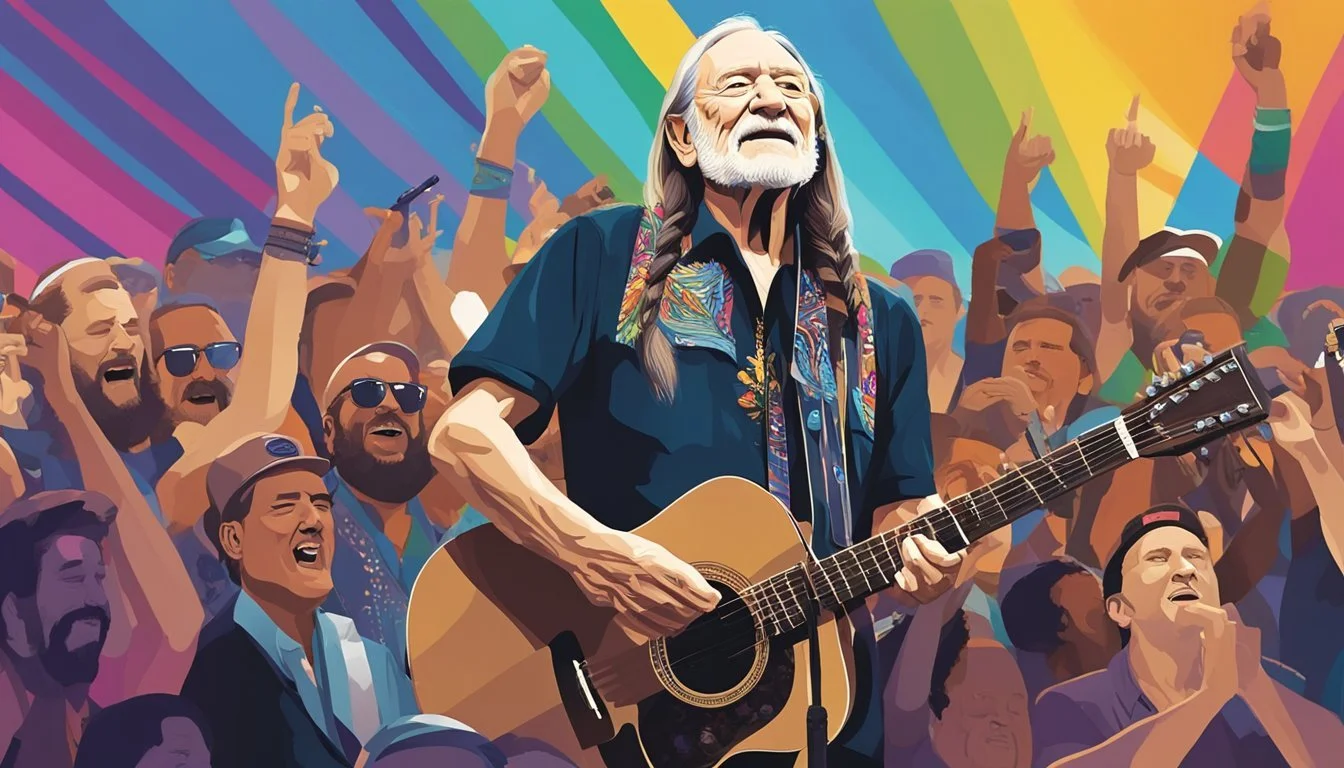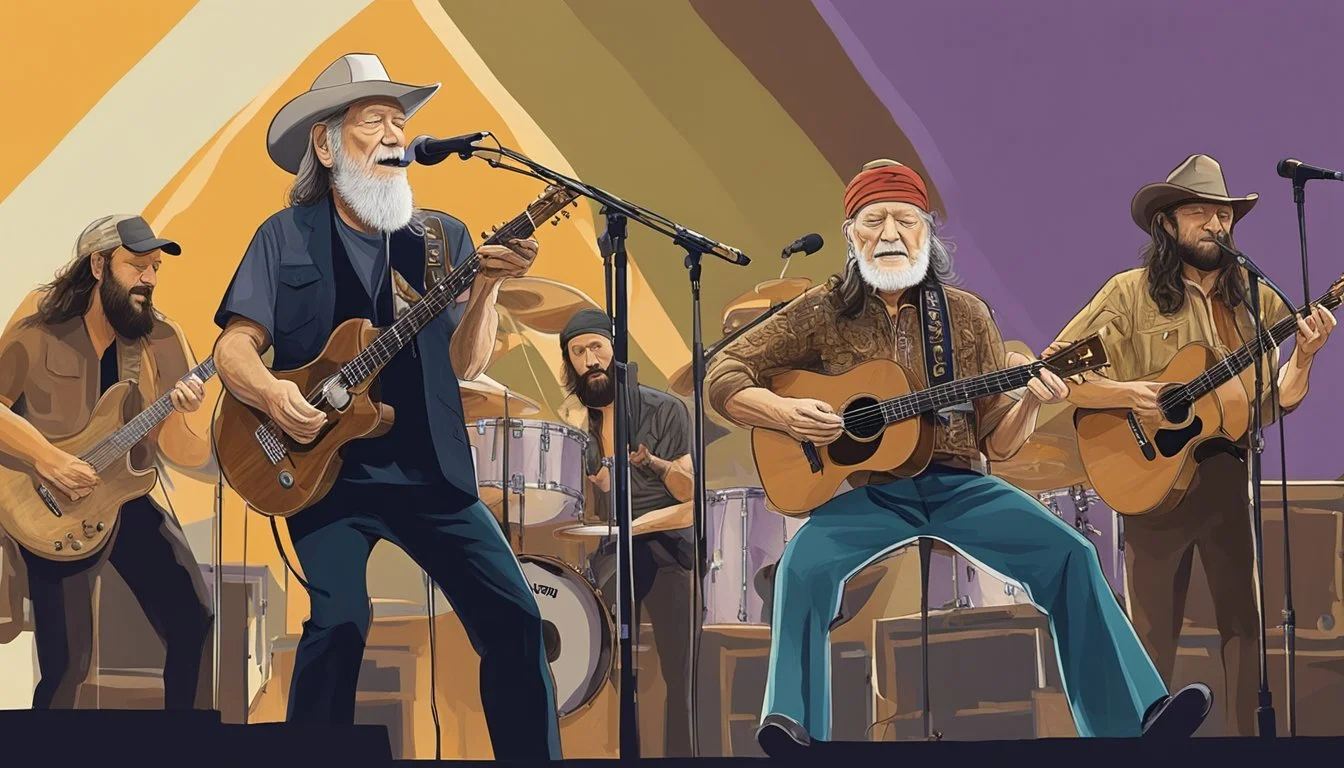The Role of Collaborations in Willie Nelson's Career as Portrayed in "Willie Nelson & Family"
Exploring Musical Partnerships in the Documentary
Willie Nelson's career has been marked by countless collaborations that have shaped his musical legacy. The docuseries "Willie Nelson & Family" showcases the country legend's penchant for working with diverse artists across genres. These partnerships have not only expanded Nelson's artistic horizons but also solidified his status as a unifying force in American music.
The series highlights Nelson's collaborations with fellow country icons, rock stars, and even unexpected partners from other musical realms. From duets with Merle Haggard to recordings with Snoop Dogg, Nelson's openness to musical cross-pollination has kept his sound fresh and relevant for decades. His ability to find common ground with artists from different backgrounds reflects his inclusive approach to music-making.
"Willie Nelson & Family" also explores how these collaborations have influenced Nelson's songwriting and performance style. The documentary reveals the give-and-take nature of his musical partnerships, demonstrating how Nelson both shapes and is shaped by the artists he works with. This collaborative spirit has helped Nelson remain a vital and evolving artist well into his 90s.
Early Life and Musical Beginnings
Willie Nelson's journey to becoming a country music icon began in his childhood years. His early exposure to music and initial songwriting successes laid the foundation for his legendary career.
From Abbott to Nashville
Willie Nelson was born on April 29, 1933, in Abbott, Texas. He wrote his first song at age seven, displaying an early aptitude for music. At ten, Nelson joined his first band, marking the start of his musical journey. During high school, he toured locally with the Bohemian Polka as their lead singer, gaining valuable performance experience.
Nelson's passion for music led him to join the U.S. Air Force briefly after high school. Following his discharge, he attended Baylor University for a short time before fully committing to his musical career.
Initial Songwriting Success
In 1960, Nelson moved to Nashville to pursue his dreams as a songwriter. His unique writing style quickly caught the attention of music industry professionals. He penned hits for established artists, including "Crazy" for Patsy Cline and "Hello Walls" for Faron Young.
These early successes established Nelson as a talented songwriter in the country music scene. His ability to craft emotionally resonant lyrics and memorable melodies set him apart from his peers. Despite his behind-the-scenes triumphs, Nelson's ambitions extended beyond songwriting, laying the groundwork for his future as a performer.
Rise to Fame
Willie Nelson's ascent to stardom involved a series of pivotal moments and artistic evolutions. His unique style and songwriting prowess gradually gained recognition, leading to breakthrough albums and collaborations that cemented his status as a country music icon.
Shotgun Willie Era
In 1973, Willie Nelson released "Shotgun Willie," marking a turning point in his career. This album showcased Nelson's distinctive blend of country, rock, and folk influences. It represented a departure from the Nashville sound, embracing a more relaxed and authentic approach.
Nelson's rebellious spirit and outlaw image emerged during this period. He grew out his hair, adopted his signature bandana look, and moved back to Texas. This shift in both style and sound resonated with a broader audience, attracting fans beyond traditional country music circles.
"Shotgun Willie" didn't achieve immediate commercial success but laid the groundwork for Nelson's future triumphs. It established him as a maverick artist unafraid to challenge industry norms.
Red Headed Stranger Breakthrough
Willie Nelson's 1975 album "Red Headed Stranger" catapulted him to superstardom. This concept album, telling the story of a preacher on the run after killing his wife and her lover, was a critical and commercial success.
Key tracks like "Blue Eyes Crying in the Rain" topped the charts, earning Nelson his first Grammy Award. The album's stripped-down production and narrative focus set it apart from contemporary country releases.
"Red Headed Stranger" solidified Nelson's reputation as a masterful storyteller and innovative musician. It became one of the best-selling country albums of all time, expanding his fanbase significantly.
Stardust and Diversification
In 1978, Willie Nelson released "Stardust," an album of pop standards that showcased his versatility as an artist. Produced by Booker T. Jones, it featured Nelson's interpretations of classics like "Georgia on My Mind" and "All of Me."
Initially met with skepticism from his record label, "Stardust" became one of Nelson's most successful albums. It spent two years on the Billboard charts and went platinum multiple times.
This unexpected triumph demonstrated Nelson's ability to transcend genre boundaries. It opened doors to collaborations with diverse artists and solidified his crossover appeal. "Stardust" marked the beginning of a period where Nelson freely explored various musical styles, further expanding his artistic legacy.
Collaborations and Outlaw Country
Willie Nelson's career flourished through his embrace of outlaw country and numerous collaborative projects. His distinctive style and rebellious spirit helped define the outlaw movement while fostering creative partnerships across genres.
Embracing the Outlaw Movement
Willie Nelson played a pivotal role in shaping outlaw country in the 1970s. He rejected the polished Nashville sound, opting for a raw, authentic approach. His album "Shotgun Willie" (1973) marked a turning point, blending country with rock and folk influences.
Nelson's long hair, bandanas, and unorthodox lifestyle embodied the outlaw image. He found kinship with other maverick artists like Waylon Jennings and Kris Kristofferson. Together, they challenged industry norms and expanded country music's boundaries.
The outlaw movement gave Nelson creative freedom. He explored diverse musical styles and unconventional themes in his songwriting. This artistic liberty allowed him to connect with a broader audience beyond traditional country fans.
Key Collaborative Projects
Willie Nelson's collaborative spirit led to numerous successful partnerships. His duet album "Pancho & Lefty" (1983) with Merle Haggard became a country classic. The title track reached #1 on the Billboard country charts.
Nelson's work with Johnny Cash, Waylon Jennings, and Kris Kristofferson as The Highwaymen produced three acclaimed albums. Their supergroup status brought outlaw country to new heights of popularity in the 1980s and 1990s.
Crossing genre lines, Nelson collaborated with jazz artist Wynton Marsalis on "Two Men with the Blues" (2008). He also recorded with rapper Snoop Dogg, showcasing his versatility and willingness to experiment musically.
Cinematic Endeavors and Authorship
Willie Nelson's artistic expression extends beyond music into film and literature. His ventures into these mediums have provided new avenues for storytelling and sharing his experiences.
Venture into Film and Books
Willie Nelson's appearances in films began in the 1970s, showcasing his versatility as an entertainer. He starred in movies like "The Electric Horseman" (1979) and "Honeysuckle Rose" (1980), blending his musical talents with acting. Nelson's on-screen presence often reflected his real-life persona, resonating with audiences.
In the literary world, Nelson has authored several books. His autobiography "Willie: An Autobiography" (1988) offers intimate insights into his life and career. He's also penned works like "The Facts of Life: And Other Dirty Jokes" (2002), combining humor with personal anecdotes.
Narrative Influence in Documentary Film
The documentary series "Willie Nelson & Family" represents a significant milestone in Nelson's cinematic journey. Directed by Thom Zimny and Oren Moverman, this project aims to present Nelson's story in an unprecedented manner.
The series utilizes archival footage and new interviews with Nelson, his late sister Bobbie, and other musicians. It explores Nelson's seven-decade career, offering a comprehensive look at his life and impact on music. The documentary's structure as a multi-part series allows for a deep dive into various aspects of Nelson's legacy.
Live Performances and Music Festivals
Willie Nelson's live performances and involvement in music festivals have significantly shaped his career and the broader music landscape. His energetic stage presence and festival contributions have left an indelible mark on country music and beyond.
Establishing a Festival Presence
Willie Nelson co-founded the iconic Farm Aid benefit concert in 1985, which has become an annual event. This festival raises awareness and funds for family farmers, showcasing Nelson's commitment to social causes. He has also been a fixture at other major festivals like Bonnaroo and South by Southwest. Nelson's festival appearances often feature collaborations with diverse artists, highlighting his versatility and cross-genre appeal.
Impact on Festival Culture
Nelson's Outlaw Music Festival Tour, launched in 2016, has redefined the festival experience for country and rock fans. The tour brings together established and emerging artists, fostering a sense of musical community. Nelson's presence at festivals has helped break down genre barriers, encouraging a more inclusive festival culture. His longevity and consistent performances have inspired multiple generations of festivalgoers, cementing his status as a festival icon.
Personal Life and Legacy
Willie Nelson's impact extends far beyond his music. His philanthropic efforts and advocacy work have shaped his public image, while his musical innovations continue to influence contemporary artists.
Advocacy and Philanthropy
Willie Nelson has been a tireless advocate for various causes. He co-founded Farm Aid in 1985, an organization that supports family farmers and promotes sustainable agriculture. The annual Farm Aid concert has raised millions of dollars over the years. Nelson is also known for his support of environmental causes and the legalization of marijuana. He launched his own brand of cannabis products, Willie's Reserve, in 2015.
Nelson's activism often intertwines with his music. He has performed at numerous benefit concerts and written songs addressing social issues. His commitment to these causes has earned him respect beyond the music industry.
Influence on Modern Country Music
Willie Nelson's unconventional approach to country music has left an indelible mark on the genre. His blend of country, jazz, and folk elements helped create the "outlaw country" subgenre in the 1970s. This style emphasized artistic freedom and rejected the polished Nashville sound.
Many contemporary country artists cite Nelson as a major influence. His storytelling lyrics, distinctive vocal style, and innovative arrangements continue to inspire new generations of musicians. Nelson's collaborations with artists across various genres have also helped bridge the gap between country and other musical styles.
His longevity in the industry and willingness to experiment have set a precedent for career sustainability in country music. Nelson's legacy as a songwriter, performer, and cultural icon ensures his lasting impact on American music.
Conclusion
Willie Nelson's collaborative spirit has significantly shaped his musical journey and legacy. His openness to working with diverse artists across genres has expanded his influence beyond country music.
Nelson's willingness to collaborate has kept his music fresh and relevant for decades. It has introduced him to new audiences and allowed him to explore different musical styles.
These partnerships have not only benefited Nelson but also elevated the careers of many fellow musicians. His collaborations serve as a bridge between generations of artists and fans.
The "Willie Nelson & Family" project highlights the far-reaching impact of Nelson's collaborative approach. It showcases how his musical partnerships have contributed to his enduring popularity and respect within the industry.
Nelson's legacy is intertwined with his collaborative nature. His ability to connect with artists across musical boundaries has cemented his status as a unifying figure in American music.

